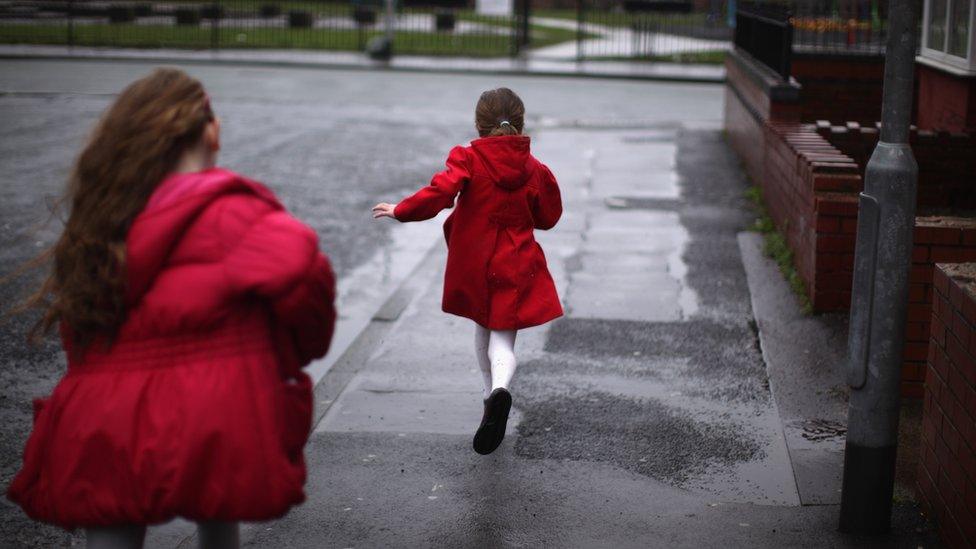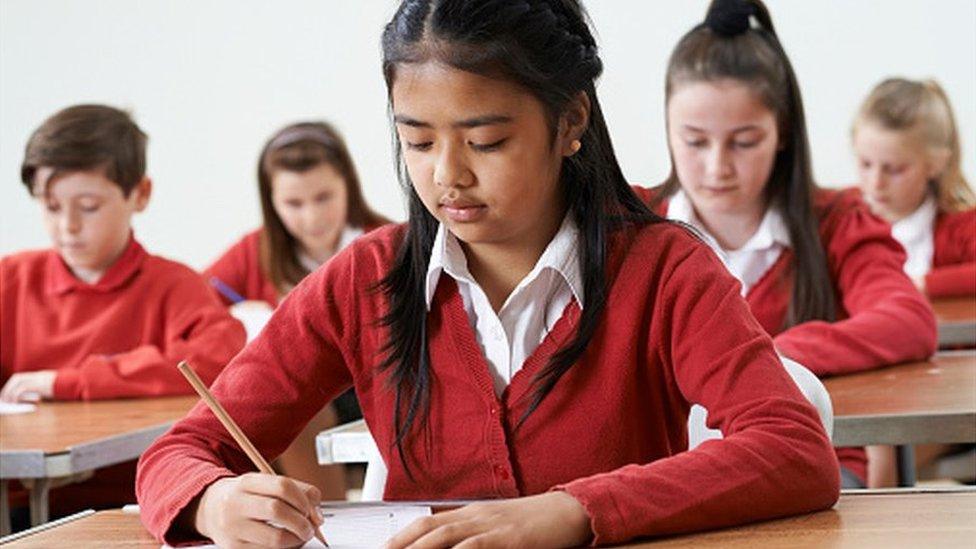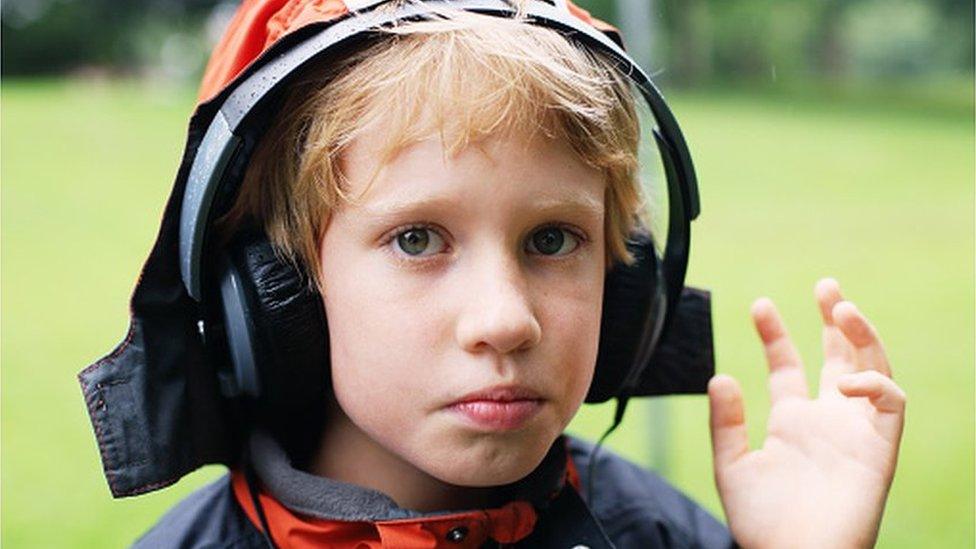Special needs cash shortfall 'leaves thousands of pupils unplaced'
- Published

A shortage of special needs funding means growing numbers of children are being left without suitable school places, a teachers' leader has warned.
National Education Union leader Kevin Courtney said official statistics showed 4,050 special needs pupils were without a place in 2017 in England.
He said it was a disgrace that such pupils were at home because councils were being "starved" of funds for them.
The government said money for schools and special needs had been protected.
It was due to rise to its highest ever level of £43bn in 2020, with £6bn allocated for special educational needs this year, it said.
But the Department for Education figures, external showed the number of pupils with special needs (SEND) without a school place last year had more than doubled from 1,710 in 2016.
'Impossible position'
The warning comes after it emerged scores of local authorities have asked to switch money targeted at their main schools budget to spend on children with special educational needs.
Councils are allocated funds for special needs in both mainstream and special schools through their "high needs" budgets.
They have been complaining of shortfalls in this budget as it has been "cash flat" for a number of years (ie, the total does not account for inflation).
At the same time, the number of pupils on plans setting out their special needs, EHCPs, has been growing.
Pupils on EHCPs have defined special needs for which extra support staff or equipment is required.
It could be a result of a diagnosis of autism or Asperger's syndrome; the child may have a hearing or visual impairment or a complex combination of diagnosis or disabilities.


Harrison Jonsson, left, is now being home schooled by his mother Sandy after he began to struggle at secondary school
'You're thrown to the wolves'
Sandy Jonsson's son Harrison, 11, suffers from autism and ADHD.
He was given an EHCP in 2014 and received good care in primary school, but after moving to a secondary school in Swindon in September 2017, Harrison began to struggle.
Ms Jonsson said he has had a nervous breakdown and subsequently developed an eating disorder and depression.
As a result, the single mother - who runs a business from home - was forced to home school Harrison until at least September, as there are no other school places available.
"Unless you're significantly disabled or have a tangible form of autism you're thrown to the wolves," she said.
"With the EHCP there's a requirement for schools to make reasonable adjustment and none of this happened."
She believes there needs to be greater oversight on how EHCP money is spent by schools, and has campaigned on the issue.

According to a survey by the Association of Directors of Children's Services, there was a £400m shortfall in high needs funding last year.
On top of this, schools have to provide £6,000 per year per pupil on an EHCP.
Mr Courtney said: "Children are at home because local authorities don't have enough money to provide suitable education.
"Local authorities are being placed in an impossible position.
"They have a legal duty to plan high quality education for every child with SEND, but cuts have taken away the resources they need to educate children with complex needs."

You may also be interested in:

As of this year, councils have to ask the education secretary for permission to do this unless they can get head teachers locally to agree.
Official figures obtained by the BBC showed 48 local education authorities - almost a third - asked for permission to switch the money from the dedicated schools grant to their high needs budget.
The DfE approved 16 and said no to 12. A further 20 councils withdrew their applications.
West Sussex was one of the local authorities which asked to reallocate general schools budget cash to high needs.
The DfE agreed to allow the council to take £2.2m from its general school funds to boost special educational needs services.
Although its funding was boosted by £12.8m or 6.5% for the coming year, the number of pupils with special needs plans is likely to increase by 500 - an increase of 10%.
The DfE said local authorities had always been able to adapt their funding allocation to meet local needs, as long as they followed a set criteria.
"The number of councils applying to do this has remained stable in recent years," it said.
"High needs funding has been protected in real terms over the next two years, and our extra £1.3bn investment for schools and high needs means we are giving local authorities more money for every pupil in every school."
- Published23 February 2018

- Published2 June 2016
